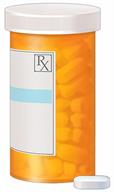Lowering the Risk of Passing HIV to Your Baby
Many people with HIV, or human immunodeficiency virus, are able to have healthy pregnancies and healthy babies. But if you have HIV, there's a risk that you could pass the virus to your baby. This can happen during pregnancy, birth, or breastfeeding.
The chances of passing the infection on to your baby are lower if you take HIV medicines. These medicines are also called antiretroviral therapy (ART). ART medicines reduce the amount of virus in your body, which is called the viral load.
When you have a lower viral load, HIV is less likely to spread to your baby. You can also take other steps to help lower the risk.
How does having HIV affect me during pregnancy?
During pregnancy, you'll need:
If your viral load is high, it may be safer for you to have a cesarean birth, also called a C-section.
How does this affect my baby?
During pregnancy
You're more likely to pass HIV to your baby if:
You have high amounts of HIV virus in your blood. This means you have a high viral load.
You don't take the medicines to treat HIV during pregnancy.
You smoke or use drugs.
You have a vitamin deficiency that affects the body's defense system, also called the immune system.
You have another sexually transmitted infection (STI).
After delivery
After your baby is born, your baby:
May have side effects from ART medicines. These problems are minor, and they get better after birth.
Will likely need ART medicines to help keep them from getting the virus.
May not be able to breastfeed.
May need ongoing medical care and monitoring as they grow.
There's no way to guarantee that your baby will be born without HIV. But taking your ART medicines and working closely with your health care provider will help lower the risk of passing HIV to your baby.
What can I expect during labor and delivery?
Your provider will talk with you about your options for labor and delivery. These options will depend on your viral load.
A few hours before delivery, you'll be given ART medicine through an IV.
If your viral load is low, you may be able to have a vaginal delivery.
If your viral load is high, you'll need extra care and have a scheduled C-section.
You'll keep taking your ART medicines on schedule as much as possible.
Follow these instructions at home:
Medicines

- To fully protect you and your baby, your provider will:
-
Take your ART medicines exactly as told by your provider. This is the most important thing you can do for your health and your baby's health.
-
Keep taking your ART medicines after your baby is born.
-
Take other medicines only as told. You may need medicines to treat infections or side effects of ART.
Feeding your baby
- Talk with your provider about the risks and benefits of breastfeeding.
Depending on where you live, breastfeeding may not be recommended due to the risk of passing the virus on to your baby through your breast milk.
Your provider will help you make the right decision for you.
- If you choose not to breastfeed, talk with your provider about your options. These may include bottle-feeding your baby with:
Caring for your baby
General instructions
- Keep all follow-up visits for both you and your baby.
-
Do not smoke, vape, or use nicotine or tobacco.
-
Do not use drugs or drink alcohol.
This information is not intended to replace advice given to you by your health care provider. Make sure you discuss any questions you have with your health care provider.
